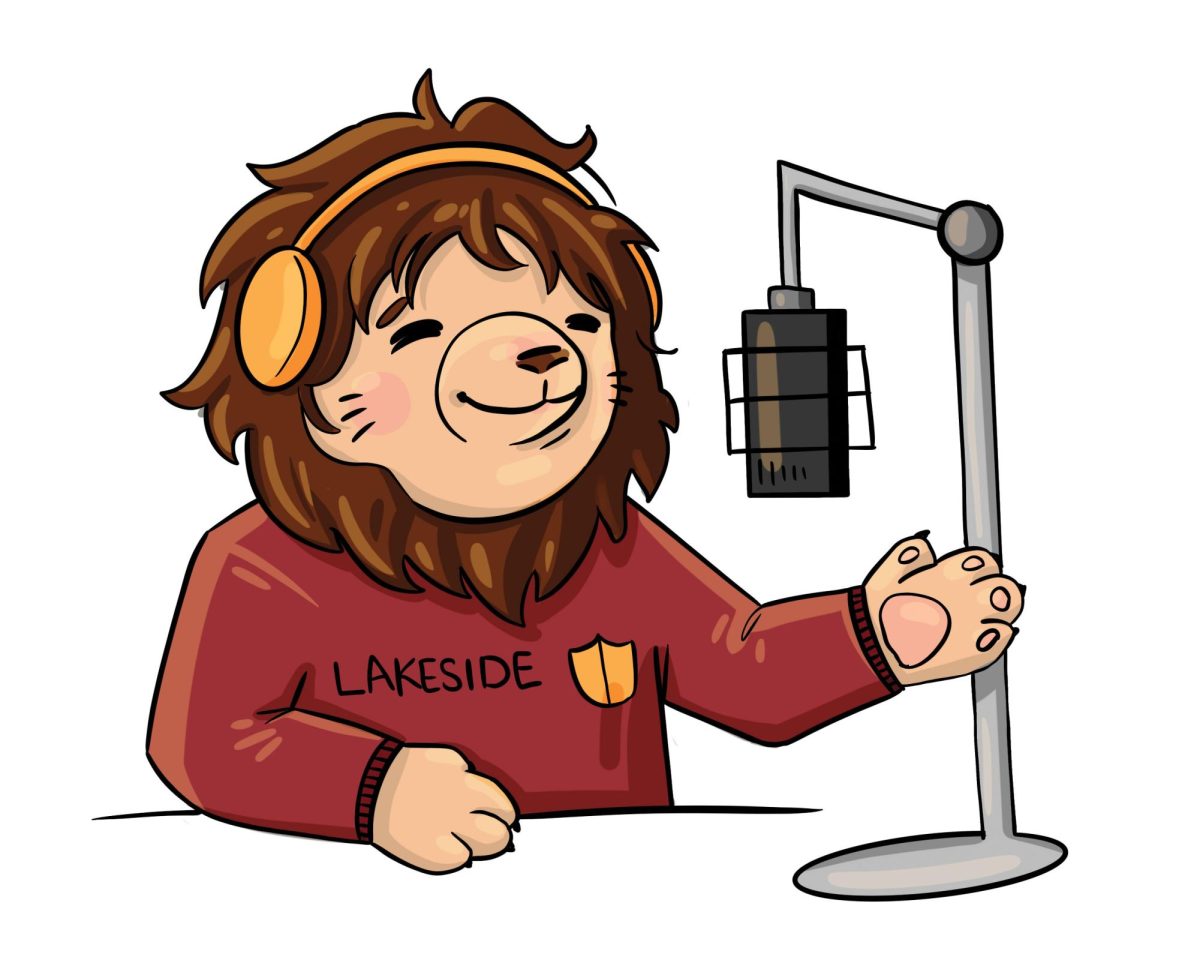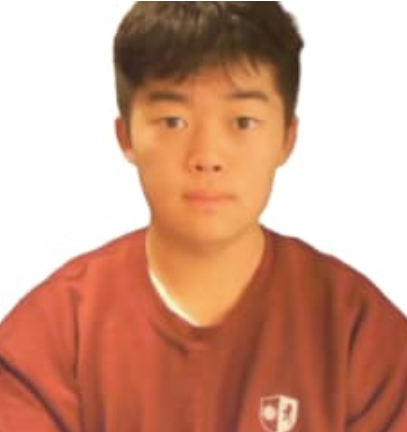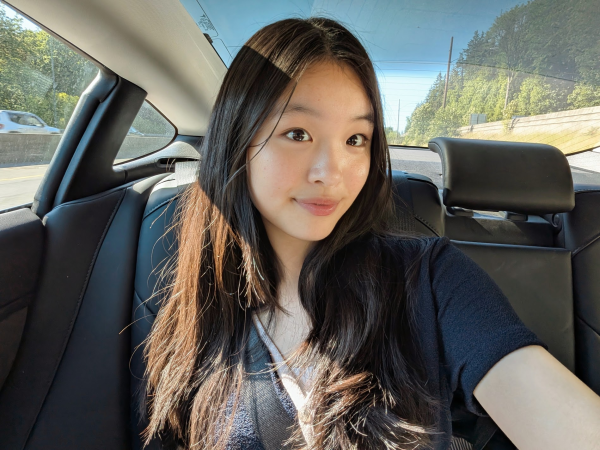Podcasts cover everything from satire and humor to the latest headlines – and have seamlessly woven themselves into our daily routines, often serving as a way to pass the time. Whether we’re stuck in traffic, tackling chores, or unwinding after a long day, many of us put on one of the millions of actively-running podcasts from around the globe, kick back, and relax.
What many don’t do, however, is create them — and much less so for an English project. Nevertheless, each year, Lakeside Middle Schoolers in the 8th grade write and produce original podcasts that are submitted to the New York Times’ Student Podcast Contest. This year, they did so under the guidance of English teachers Ms. Sarah Callender and Mr. Adam Graham-Silverman.
The podcast contest began in 2017 and is run by The Learning Network, the New York Times’ education platform. It consistently has around a thousand middle and high school student participants who each produce a five-minute original podcast. In addition to supplying educators with lesson plans and writing prompts, The Learning Network also hosts a range of other contests, including those for reading and literature, photography, art, and journalistic or informational writing.
Out of nearly 1,100 submissions nationwide, 58 podcasts were recognized by the Times, and six of those belonged to these Lakesiders, who earned two runners-up spots and four honorable mentions. Incoming freshmen Grace L. and Yuri S. caught the attention of both listeners and judges with their respective podcasts “How Long Does It Take to Learn a Language?” and “What Makes Us Nostalgic?,” earning them two of the 12 runners-up spots. Additionally, their classmates Meera W. with “Crushing It,” Gabriella N. with “Beneath the Waves: Exploring Deep Ocean Mysteries,” Dilara Y. with “Mind Over Medicine: What is the Placebo Effect?,” and Chloe Z. with “Why Do We Procrastinate?” all impressed judges with diverse topics and in-depth podcasts, earning them four of 35 honorable mentions.
Each year, the competition’s judges seek thoughtful entries with clear structure and meaning, along with usage of spoken word, audio editing, effects, and background music — all elements of popular podcasts airing around the world today. The competition itself leaves a lot of creative liberty for its contestants — there are almost no regulations on topics, formats, or editing tools. Judges only restrict profanity and time, allowing submissions to be no longer than 5 minutes. Judges also asked for an Artist’s Statement with each submission — a short written piece that explains what contestants did in their podcast’s creation and what the easiest and most difficult parts of their creation process were.
Tatler talked with ’28s Grace L., Yuri S., and Meera W. ’about their experiences with the contest. Here’s what they had to share.
What inspired you to choose your topic?
Grace L. explained, “We pretty much had complete freedom for what topic we wanted to do.” For her, “the idea came almost immediately,” due in part to a long-standing interest in learning and mastering new languages. She had to put forward five different topics for her podcast, but ultimately she “just listed four other random ideas I knew I wouldn’t go with because I couldn’t imagine doing any other topic.”
Much like Grace, Yuri S. described the process behind choosing his topic as “a little random,” in the sense that there wasn’t a “very robust ideation process set up by our English teacher,” so it wasn’t difficult for students to select topics. Yuri ended up choosing emotions — according to him, “Emotions are really powerful, so I wanted to talk about something we could all relate to.” His original inspiration was creating something similar to NPR’s Hidden Brain “except in five minutes and without a budget.”
Meera W. deliberated on her topic for a little longer than some of her peers, saying, “I was having trouble thinking of subjects that were both interesting to me and relevant to myself and my classmates.” She discussed with a friend what topics many would be interested in, and was aiming for something “thoughtprovoking and relevant to middle schoolers.” Ultimately, they came up with the idea of crushes — in Meera’s words, “something that many middle schoolers have experienced.”
What were your goals for the podcast? Where did you begin?
One of Grace’s main goals was to interview a wide range of people with “diverse and unique language learning backgrounds.” She ultimately spoke with around 20 peers and several language teachers, who provided “plenty of interesting and wise insights” on learning and teaching languages. Grace described the interview process as her favorite part, saying, “I learned so much from everyone I got to speak with!”
As for Yuri, he aimed to create a podcast that was “artsy and interesting” while still being “professional and well thought-out,” concise, and emotionally impactful. Yuri admitted that his perfectionism was mainly for good grades. For him, the contest itself was secondary, and he was more focused on providing a polished final product.
What was it like creating the podcast as a whole?
As for the timeline, I’d estimate that the total project took about a month,” Grace shared. She explained that they spent about a week brainstorming potential podcast ideas, followed by another week dedicated to interviewing and gathering as much raw audio as possible. “I think I had almost 30 minutes total of recorded audio from interviews,” she mentioned, though most of it wasn’t included in the final podcast. After that, Grace spent a little over a week drafting scripts for the narration, making “countless small changes and edits with the help of classmates to make a polished script.”
Yuri reflected on the time constraints, noting that “We only had a certain amount of time. I don’t remember how long it was.” Despite this, he dove deeply into the project, driven by his love for NPR and shows like Hidden Brain. “This needs to be perfect,” Yuri recalled thinking, which led him to create a detailed document that tracked everything — from his full script and how long each section took, to the timestamps for each song used. “It was sorta crazy, but it was really fun, and I really was able to get into it,” he said.
“Hearing what they had to say on the topic was very exciting and interesting,” Meera states, expressing how much she enjoyed creating the podcast, especially the experience of conducting interviews with her classmates. Additionally, Meera appreciated learning how to use the technology to create the podcast, noting, “I’m sure that will be a helpful skill to have in the future.”
What are your thoughts on receiving the honors, and what have you learned?
“I’m honestly still so surprised about receiving recognition from the NYT Podcast Contest!” Grace exclaimed. She expressed deep gratitude towards her English teacher, the peers she interviewed, and everyone else who supported her along the way, saying “As cliché as it is, I genuinely couldn’t have done it without them.” Reflecting on the project, Grace noted that it was one of her favorites from the past school year, particularly because it allowed her to explore a topic she was truly passionate about.
Yuri had a mixed reaction upon learning about his recognition. “Right away, it was in the morning, I always sleep in, and my mom was like, ‘Oh, my gosh, you’re in the New York Times,’” he recalled. Initially, he was a bit disappointed because he was hoping for a win, not a runner-up spot. However, after a little reflection, he realized, “That’s pretty cool. You got in the New York Times somewhere, and there’s a link to it, I’m famous.” Yuri acknowledged that the experience boosted his ego but in a good way, saying, “Hard work pays off. And if you’re a runner-up, it’s good, too.”
“I was very surprised because I entered without expecting to get anything,” Meera said. For her, it was rewarding to receive recognition for something she initially saw as just a school assignment. “It was cool that this had just started out as a school assignment that I was trying to get done but ended up as something that I was passionate about, enjoyed doing, and got recognized for!” she concluded.
Congratulations once again to Grace L., Yuri S., Meera W., Gabriella N., Dilara Y., and Chloe Z., along with all the Lakeside students who took part in this year’s podcast contest!
This interview has been edited for clarity.



